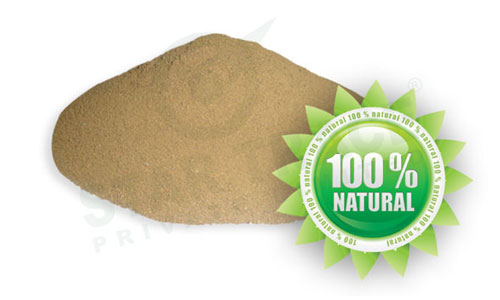Other Equipments-Fertilizer Filler


Star fertilizers filler is naturally added with micronutrients and secondary nutrient.
Iron, sulphur, calcium, magnesium, copper, manganese, sodium, potassium, zinc, and boron.
- ColStar : light gray
- Bulk density : 1.34
- PH – 7.60
- EC – 2.0 (dSm-1)
- calcium oxide – 0.70%
- Magnesium oxide – 1.65%
- Sulphur – 1.31%
- Utilized for Continuous cell division and formation
- Involved in nitrogen metabolism
- Reduces plant respiration
- Aids translocation of photosynthesis from leaves to fruiting organs
- Increases fruit set
- Essential for nut development in peanuts
- Stimulates microbial activity
- Key element of chlorophyll production
- Improves utilization and mobility of phosphorus
- Activator and component of many plant enzymes
- Directly related to grass tetany
- Increases iron utilization in plants
- Influences earliness and uniformity of maturity
- Integral part of amino acids
- Helps develop enzymes and vitamins
- Promotes nodule formation on legumes
- Aids in seed production
- Necessary in chlorophyll formation (though it isn't one of the constituents)
Iron as Fe – 11.00 %, it act in the below roll, when we apply to the crops. We can able to supply iron percentage as per the customer requirements
- Promotes formation of chlorophyll
- Acts as an oxygen carrier
- Reactions involving cell division and growth
- Copper – 0.20%
- manganese – 0.20%
- Zinc, boron, and molybdenum - in ppm level
The micronutrients are boron, copper, manganese, molybdenum, and zinc. These plant food elements are used in very small amounts, but they are just as important to plant development and profitable crop production as the major nutrients. Especially, they work "behind the scene" as activators of many plant functions.
- Catalyzes several plant processes
- Major function in photosynthesis
- Major function in reproductive stages
- Indirect role in chlorophyll production
- Increases sugar content
- Intensifies color
- Improves flavor of fruits and vegetables
- Functions as a part of certain enzyme systems
- Aids in chlorophyll synthesis
- Increases the availability of P and CA
- Essential of germination of pollon grains and growth of pollen tubes
- Essential for seed and cell wall formation
- Promotes maturity
- Necessary for sugar translocation
- Affects nitrogen and carbohydrate
- Required to form the enzyme "nitrate reductas" which reduces nitrates to ammonium in plant
- Aids in the formation of legume nodules
- Needed to convert inorganic phosphates to organic forms in the plant
- Aids plant growth hormones and enzyme system
- Necessary for chlorophyll production
- Necessary for carbohydrate formation
- Necessary for starch formation
- Aids in seed formation
Packaging Detail:Available in 25 kg,50 kg & in jumbo bags or as per the request.
Delivery:Immediate or as per the request.
Advantages
The following are the Advantages of Fertilizer Filler:
- It improves the fertilizer quality because of secondary nutrients and micronutrients are present in a single filler
- It helps to improve plant growth and yield production
- It is fine powder and passing through below 300 micron. Since it is grinding ball mill and screened for uniformity in size.
- It is highly cost effective, and 100% eco friendly.
- Mixtures have better physical condition and are easier for application.
- The iron percentage can be increased as per the customer requirements.
By applying our fertilizer filler as it is (without adding any additives) the following improvement has been observed in horticulture and agriculture cultivation.
Applying method: Ring method (or) band method (or) broadcasting method.
Study Report
By applying Ring method (or) band method (or) broadcasting method star fertilizer filler as it is in the form (without adding any additives) the following improvement has been observed in horticulture and agriculture cultivation.
| S.NO | Crops | Effect on the crops height increased | Effect on the yield increased |
| 1 | Soybean | 25 % | 20 % |
| 2 | Ground nut | 28 % | 15 % |
| 3 | Wheat | 27 % | 12.5 % |
| 4 | Potato | 15 % | 22 % |
| 5 | Maize | 23 % | 16 % |
| 6 | Sunflower | 10 % | 20 % |
| 7 | Bengal gram | 22 % | 14 % |
| 8 | Dry fruits | 18 % | 12 % |
| 9 | Onion | 12 % | 9 % |
| 10 | Cotton | 16 % | 10 % |
| 11 | Cabbage | 14 % | 15 % |
| 12 | Tomato | 16 % | 12 % |
| 13 | Cauliflower | 19 % | 12 % |

